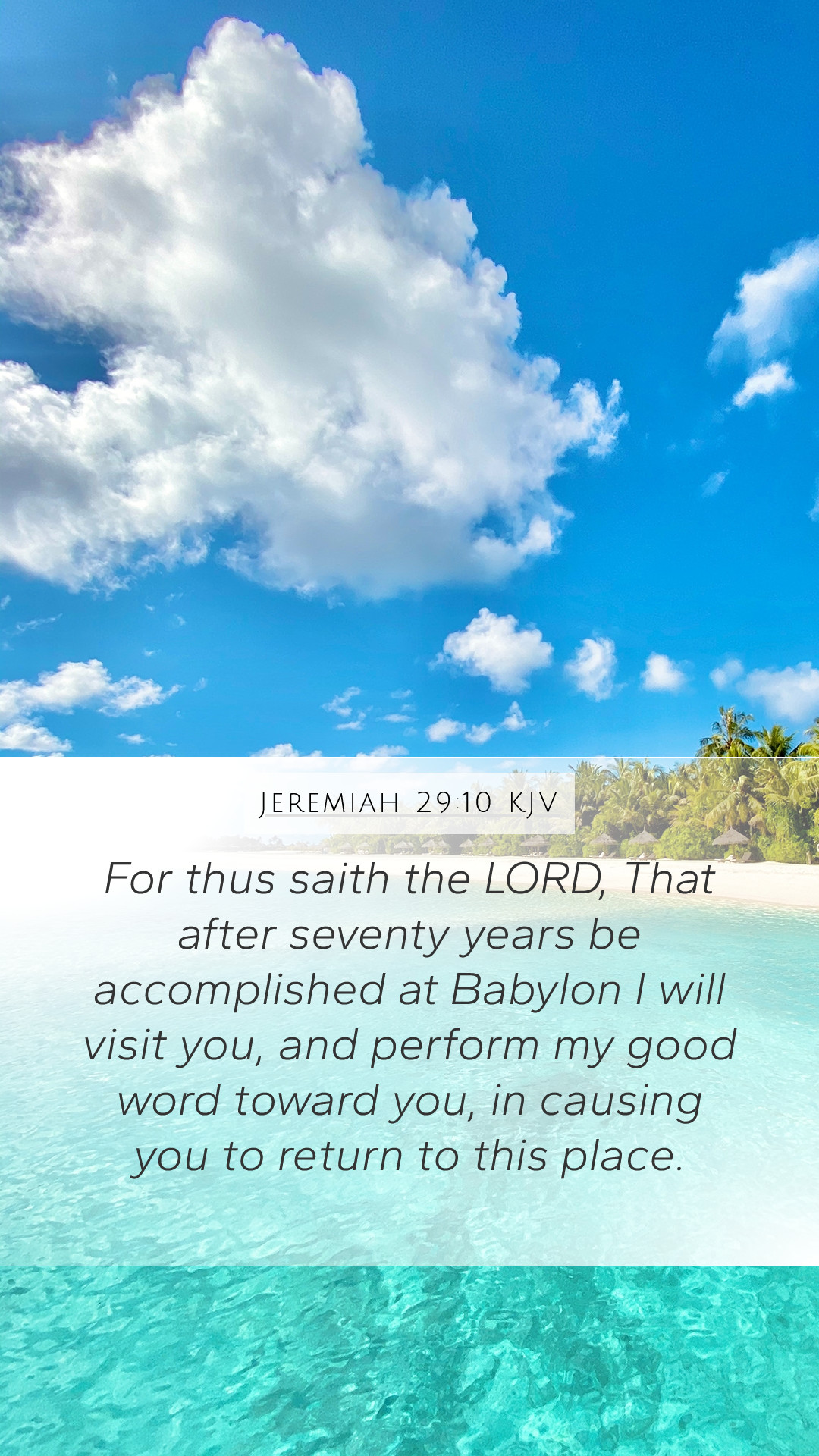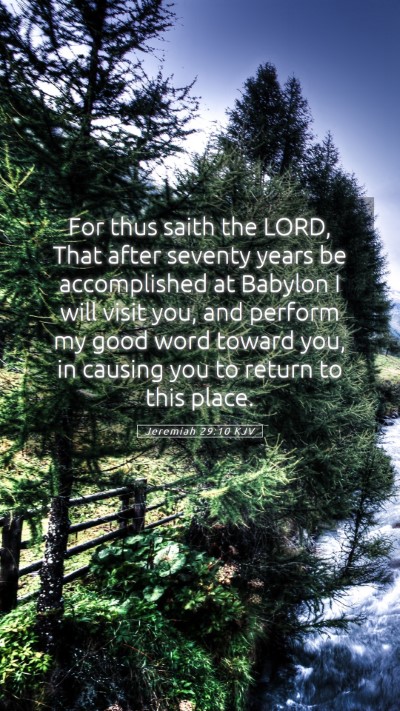Understanding Jeremiah 29:10: This verse states, "For thus says the LORD: After seventy years are complete at Babylon, I will visit you and perform My good word toward you, and cause you to return to this place." This passage is a significant message from God to the exiled people of Israel, providing them with comfort and hope amidst despair.
Context of the Verse: The Book of Jeremiah is predominantly concerned with the warnings of impending judgment upon Israel for their disobedience. However, it also offers glimpses of hope for eventual restoration. This specific verse falls within a letter sent by Jeremiah to the exiles in Babylon, acknowledging their current suffering but also promising a future restoration.
Bible Verse Meanings Breakdown:
- “After seventy years”: This symbolizes a period of suffering and consequence for the Israelites, pointing to God's discipline but also His ultimate plans for redemption. Matthew Henry states that God's purpose, while allowing for affliction, is to lead His people back to Him.
- “I will visit you”: This phrase indicates God's intention to be actively involved with His people, demonstrating that their plight does not go unnoticed. Albert Barnes notes that God's visitation is one of care and attention, promising that He will intervene at the appointed time.
- “Perform My good word”: This highlights the reliability of God's promises. Adam Clarke emphasizes the certainty of divine promise fulfillment, encouraging believers to trust in God’s faithfulness through uncertainty.
- “Return to this place”: This aspect speaks to both physical and spiritual restoration. Matthew Henry reinforces this as a metaphor for returning to a state of favor with God, indicating that exile is not permanent and God wishes to bring His people back.
Insight from Commentaries:
Matthew Henry elaborates that God grants hope through His prophetic message during Israel's captivity. He explains that this prophecy of return is not just about returning to their homeland but also implies restoring their relationship with God. Similarly, Albert Barnes draws attention to the timeline of seventy years, making a connection to the prophetic nature of Jeremiah's message, which serves as a beacon of hope among despair.
Adam Clarke adds that the number seventy was symbolic in the Jewish tradition, indicating completeness. God allows His people a period of correction to ultimately bring them back to Him when they have learned the lessons of dependence and faith.
Application of the Verse: For modern readers, Jeremiah 29:10 offers reassurance that despite present hardships, there is a divine plan at work aimed at restoration and hope. In a world filled with uncertainty, believers are encouraged to maintain their faith. Understanding Scripture in this way allows individuals to see lasting truths about God's character and His promises.
Related Bible Cross References:
- Isaiah 40:1-2 – Offers comfort and speaks of God's intended forgiveness and restoration.
- Jeremiah 30:18-22 – Further elaboration on restoration and the establishment of a covenant with Israel.
- Ezekiel 34:11-16 – God's commitment to seek out and restore His people.
- Zechariah 1:16-17 – God's promise to return to Jerusalem and show compassion to His people.
- 2 Chronicles 36:22-23 – The decree of Cyrus allowing the Israelites to return to Jerusalem after their exile.
Conclusion: The verse Jeremiah 29:10 serves as a cornerstone in understanding God's promise of redemption. It highlights key themes of hope, restoration, and God's unyielding faithfulness. Engaging with this scripture in comprehensive Bible study lessons can deepen your Bible verse understanding and enrich your spiritual growth.
Using Bible Study Tools: For anyone engaging in online Bible study or Biblia, this verse can serve as a focal point for discussions. It can guide dialogues within Bible study groups around themes of enduring hope and divine timing, enhancing scripture analysis in practical life applications.


